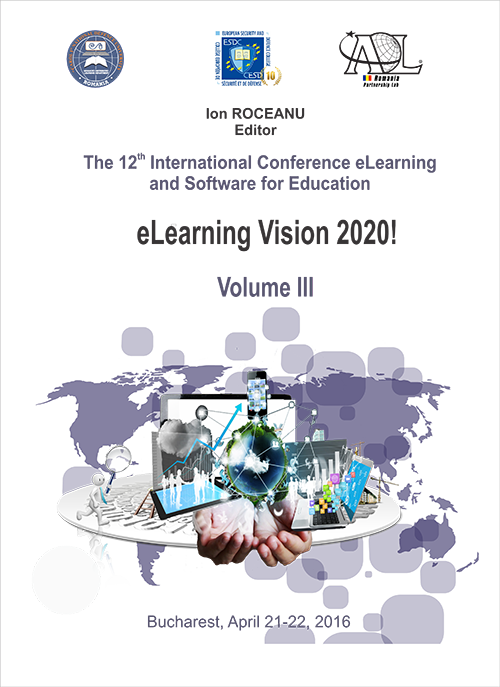SIMULATION GAMES IN THE STUDENTS LEARNING PROCESS
SIMULATION GAMES IN THE STUDENTS LEARNING PROCESS
Author(s): Silviu Mihail Tiţă, Carmen TIŢĂSubject(s): Education, Media studies, Higher Education , ICT Information and Communications Technologies, Sociology of Education
Published by: Carol I National Defence University Publishing House
Keywords: games; simulation; students learning; higher education; practice;
Summary/Abstract: This article discusses the effects of simulation games in the education of students and the skills and abilities that they obtained after participating in discipline-based on the online or outline simulation programs. These applications may be individual or components software of e-learning platforms. Gamesbased learning has captured the interest of educationalists and industrialists who seek to exploit the characteristics of computer games as they are perceived by some to be a potentially effective approach for teaching and learning. The type of the activity to the students in enhancing cooperation and constructing higher responsibility is games. A simple game can be able to improve cooperation and social ability of the member; to practice communication; and to improve emotional management. One more this simulation games can development leadership style of the participants. This research shows a link between the effects of simulation programs and performance of the simulation game. Simulating various aspects of professional environment and real industrial processes, allows to train students apply the obtained theoretical knowledge and solve problems emerging in their professional activity. For the design of educational games, the results suggest that the challenge of the game should be able to keep up with the learners growing abilities and learning in order to endorse continued learning in game-based learning environments. The link between students developmental (formative) assessment opportunities over the course of the simulation, explaining assessment criteria and ways that students can improve their performance, requiring students to undertake reflection on their learning and outcomes, and ensuring that higher order thinking skills are engaged.
Journal: Conference proceedings of »eLearning and Software for Education« (eLSE)
- Issue Year: 12/2016
- Issue No: 03
- Page Range: 572-577
- Page Count: 6
- Language: English

